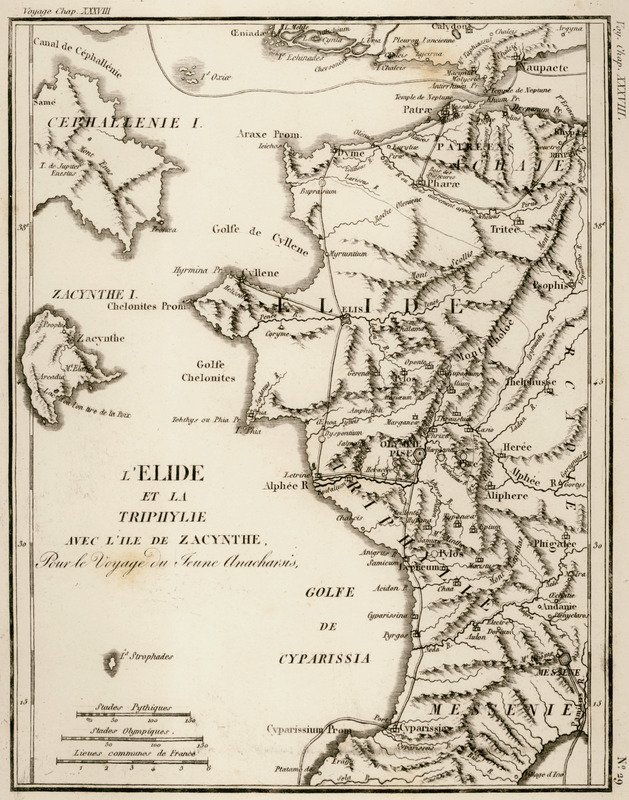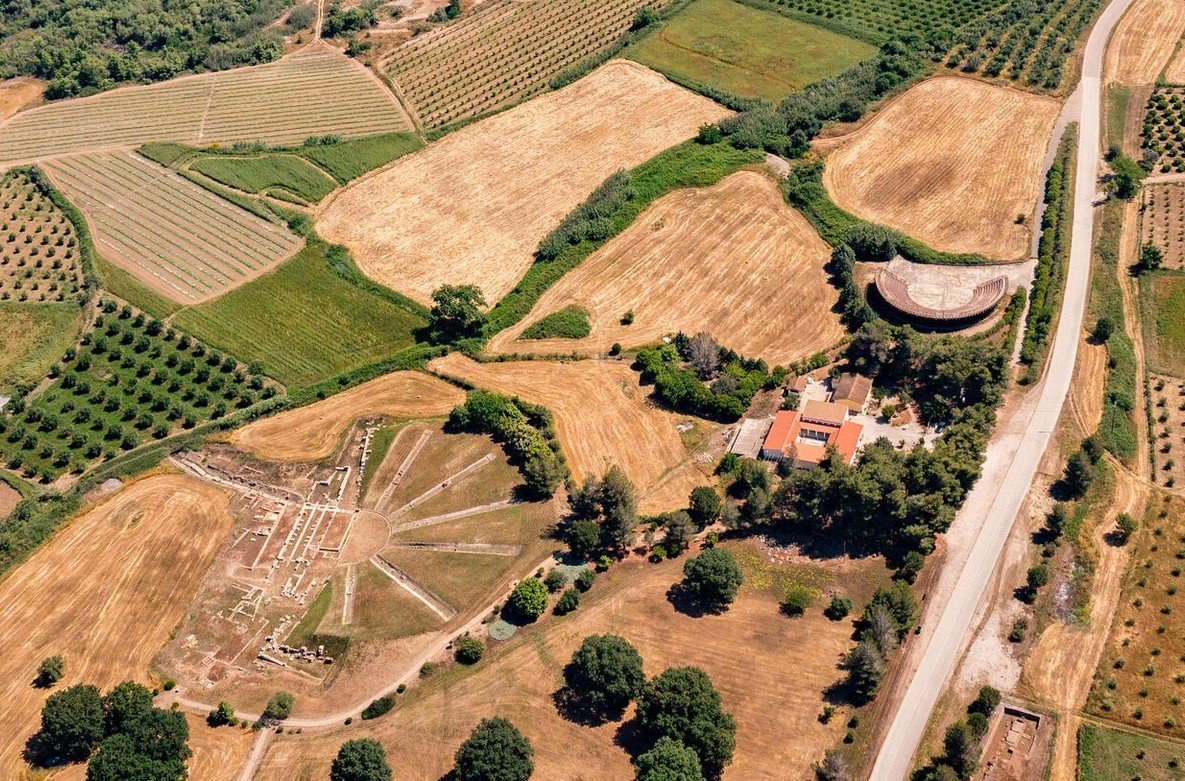Elis was the city responsible for organizing and holding the famous Olympic Games of antiquity. Athletes who wished to take part in the Games had to present themselves at least forty days before their start in the city of Elis, the capital of the ancient state of Elis, in whose territory the Panhellenic Sanctuary of Zeus at Olympia was located.
In Elis, the athletes would first be checked by the Hellanodikes, as to whether they had the conditions to take part in the games, they would be taught the practical rules of the sports and the principles of ‘fair play’ and would be trained in its sports facilities. The best of them, those who managed to meet the hard training and other tests of the Hellanodikes, acquired the right to participate in the games at the Olympic Sanctuary and in this capacity became members of the sacred Procession.

According to literary sources, Elis (or Ilida) was 300 stadia (about 58 km) away from the Sanctuary of Zeus at Olympia via the plain Sacred Way.
On the eve of the opening of the Olympic Games, the magnificent Sacred Procession was formed, which started from Elis and, following the Sacred Way, proceeded on foot to Olympia..
HISTORICAL MAP BY BARBIÉ DU BOCAGE FROM HIS FOUR-VOLUME WORK TITLE VOYAGE DU JEUNE ANARCHARSIS EN GRÈCE 1787.
The prominent members of the Sacred Procession who were at the head were the Hellanodikes, the priests and officials of Elis, the athletes with their trainers as well as the “theoroi“, as the official envoys of the Greek cities were called. The procession included the horsemen and charioteers with their racing horses and chariots, the inhabitants of Elis, the people of the surrounding areas and the numerous foreign visitors and pilgrims along with their rich offerings and animals for sacrifice to Zeus.

When the procession reached the spring of Piera, a pig sacrifice was performed by the Hellanodikes as part of a purification ceremony. The Sacred Procession then headed along the Sacred Way to the small town of Letrina (near Pyrgos, the present-day capital of Elis), where everyone spent the night. The next day, around noon, the procession finally arrived in Olympia and its arrival signaled the beginning of another Olympiad.
The same course through the plains of Elis was followed at the Heraia, a festival in honor of Hera that was held in Olympia and organized by the “sixteen women” of Ilia, based in Elis.


